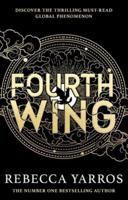Publisher's Synopsis
In The New Era of Gods, technology is no longer just a tool-it has become a religion. With the rise of AI, blockchain, genetic engineering, and virtual worlds, humanity now worships at the altar of algorithms, where code dictates desire, ethics bend to efficiency, and progress is conflated with salvation. This provocative work dissects the dangerous allure of technological utopianism, revealing how our modern "gods" replicate ancient hierarchies, manipulate belief, and threaten the very essence of what it means to be human.
From DAOs (Decentralized Autonomous Organizations) promising democratic governance-only to enforce oligarchies of code-to cryptocurrencies framing financial freedom as a spiritual quest, the book exposes the paradoxes of a world seduced by convenience. It critiques AI-driven education platforms that replace Socratic dialogue with gamified quizzes, gene-editing tools that blur the line between healing and hubris, and virtual realities that trade tangible connection for digital escapism. The author argues that technology's promise of liberation often masks new forms of colonization: social media's "digital fundamentalism" erodes individuality, algorithmic labor platforms turn workers into disposable cogs, and "green" tech solutions accelerate ecological collapse. Yet this is not a manifesto against innovation. Instead, it calls for a rebellion of consciousness-a demand to treat technology as a partner, not a deity. Blending philosophical inquiry with razor-sharp analysis of contemporary trends, The New Era of Gods challenges readers to reclaim agency. It urges us to ask: Who shapes our tools, and who do they truly serve? The book concludes with a urgent plea: to reject blind faith in progress, reassert human values, and forge a future where technology amplifies-rather than erases-our humanity. A critical exploration of power, ethics, and identity in the digital age, this work is essential for anyone questioning the cost of our technological fervor-and seeking to become masters, not priests, of the machines we create.









